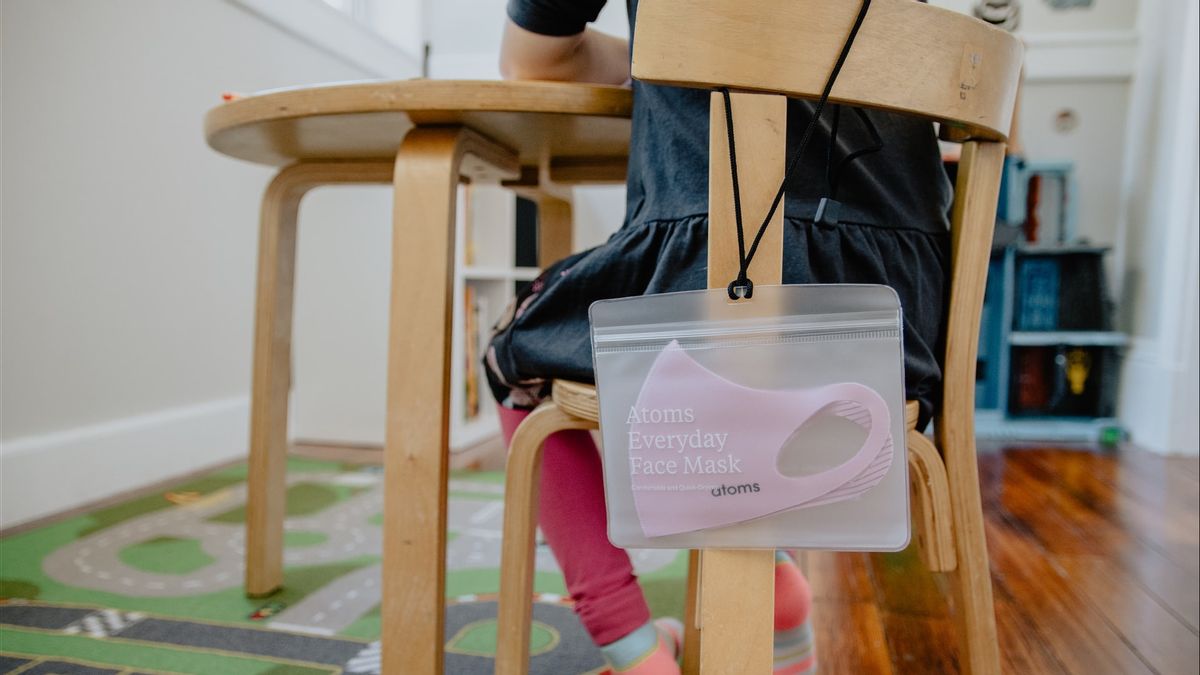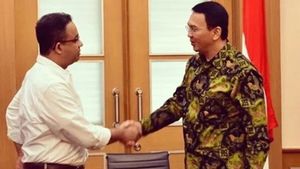JAKARTA - Commissioner of the Indonesian Child Protection Commission (KPAI) Retno Listyarti said violations of health protocols were often encountered by KPAI when conducting direct supervision of PTM to various schools in a number of regions from 2020 to 2021.
The main prokes violations are 3M, including masks placed on the chin, masks hanging around the neck, hand washing facilities that are not accompanied by running water and soap, and some teachers and students are even not wearing masks while in the school environment.
"There is even an elementary school that has a handwashing area in front of each class, but when KPAI came and sat near the school gate, none of the students and educators washed their hands when they arrived at school," said Retno in a statement received by VOI. , in Jakarta, Monday, September 27.
There are also schools where the majority of students take off their masks when they arrive at school. When interviewed, the children said they wore masks on the way to and from school. "The function of the mask is the same as the finished helmet," said Retno again.
On Saturday, September 25, Retno admitted to receiving public complaints through the WhatsApp application on her cellphone. "I received complaints from Bandung and Sumedang regencies. Complaints came from Kindergarten (TK) and Elementary School levels, accompanied by photos," explained Retno.
In the photo, a male student in a white and red uniform is being checked for temperature with a Thermogun by a female teacher who is not wearing a mask. While the other photo is the atmosphere in the classroom where the children are standing with their hands raised in front of them. There is 1 female teacher and 9 kindergarten students, all of whom are not wearing masks, both teachers and students. It's very dangerous," he added.
Should, he continued, education should be opened from universities and high school/vocational and junior high schools whose students have been vaccinated and whose behavior has been controlled. While PT has not been opened, PAUD/TK and SD have even opened. In fact, PAUD/TK and SD children have not received the vaccine and the behavior of kindergarten and elementary school children is difficult to control. "This is very risky," he said.
KPAI recommendationsFirst, to ensure that schools have met all the requirements and needs for implementing PTM, including ensuring that health protocols can be met. If not, then the local government must help fulfill it, especially for schools that are poor and have few students
Second, the central government is obliged to accelerate vaccination for students aged 12-17 years. Vaccination rates must reach at least 70 percent of the school population in order to establish herd immunity. If only teachers are vaccinated, then community immunity has not been established, because the number of teachers is only about 10 percent of the total number of students. In addition, the central government must ensure that the provision of vaccines for children is evenly distributed throughout Indonesia. KPAI's brief survey last August found that vaccination for children was dominated by Java Island and even then only targeted children in urban areas.
Third, local governments must be honest with the transmission rate of Covid-19 cases in their area. According to WHO provisions, if the rate of transmission of cases is below 5 percent, it is safe to open face-to-face schools. Therefore, the government needs to increase 3T (testing, tracing, treatment), not even reduce it so as to produce a low rate of case transmission. Because the number of cases is obtained by dividing the total number of positive cases by the number of people tested and multiplying by 100.
Fourth, schools need to do material mapping for each subject, considering that PJJ and PTM are carried out in tandem. Easy and ongoing material is given at PJJ with the help of modules, while difficult material is delivered during PTM so that there is direct interaction and dialogue between teachers and students. This is also part of an effort to help children understand difficult and very difficult material so as to reduce student stress.
Fifth, teachers and parents must educate and be role models for changing children's behavior in implementing the 3M health protocol (wearing masks, washing hands, maintaining distance). PTM during the pandemic is very different from PTM before the pandemic. Based on KPAI's direct monitoring in a number of schools in several regions, the most PTM violations were in the use of the wrong masks. Even teachers and students were found who were not wearing their masks.
Holding PTM in a condition where the rate of case transmission is not below 5 percent and poor compliance in the application of health protocols is a risky decision for Indonesian children. Children's right to life is number one. Number two is the child's right to health, while the right to education can be placed at number three. The argument is that if the child is healthy and alive, then all the lessons left behind can still be caught up.
The English, Chinese, Japanese, Arabic, and French versions are automatically generated by the AI. So there may still be inaccuracies in translating, please always see Indonesian as our main language. (system supported by DigitalSiber.id)













